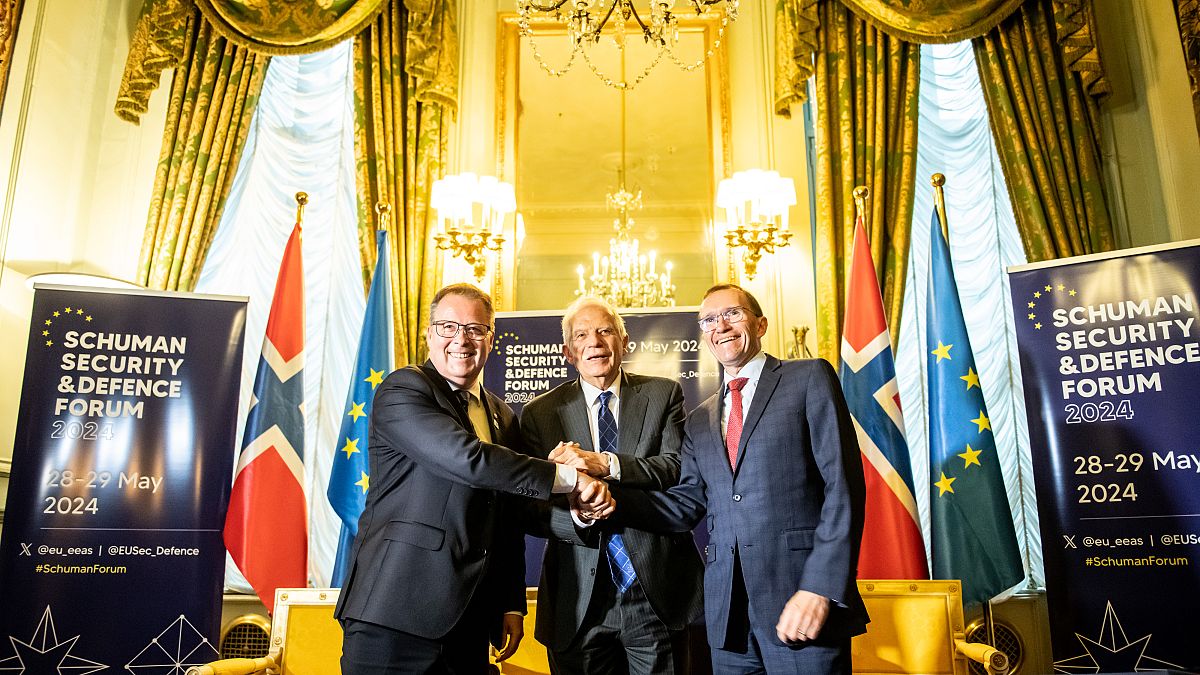The European Union (EU) is expanding its defense deals with Moldova and Norway, with plans for six more in the pipeline as the bloc aims to strengthen its military capabilities. Amid the ongoing conflict in Ukraine and uncertainty surrounding a possible second term for former US President Donald Trump, the EU is looking to establish a global network for enhanced security and peacekeeping efforts. The recent agreements with Moldova and Norway mark the beginning of a new era for EU defense policy, with a potential dedicated defense commissioner to be appointed under the new executive set to take office in November.
Josep Borrell, the EU’s High Representative, highlighted the importance of these defense deals during a speech at the Schuman Forum in Brussels. By signing agreements with countries like Moldova and Norway, the EU is seeking to create collaborative partnerships that will benefit all parties involved. The recent deal with Norway, a NATO member, focuses on cooperation in various areas, including Ukraine, maritime security, and peace mediation. Both sides believe that this agreement will strengthen security for the entire region.
With the threat of conflict looming in Europe and concerns about the reliability of its traditional allies, the EU is taking steps to address its defense capabilities. Ursula von der Leyen, the former German defense minister and current European Commission President, has pledged to prioritize defense policy in her second term. The EU’s focus on defense does not necessarily undermine its relationship with the United States but rather serves to reinforce NATO’s European pillar. The EU is positioning itself as a key player in the realm of global security and peacekeeping efforts.
While specific details about the six upcoming defense deals remain undisclosed, there is speculation that the UK could be a potential candidate in the future. Despite the challenges posed by Brexit negotiations, British Labour leader Keir Starmer has expressed interest in strengthening security cooperation with the EU. EU member states, such as Belgium, have also shown their commitment to supporting countries in need, as evidenced by the recent security pact signed with Ukraine. This demonstrates the EU’s willingness to provide both financial and military assistance to regions affected by conflict.
As the EU continues to forge new defense partnerships and enhance its military capabilities, it is clear that the bloc is taking a proactive approach to safeguarding its interests and promoting global security. The upcoming appointments and agreements suggest that the EU is committed to playing a more active role in defense matters, both within Europe and on a global scale. By fostering collaboration with countries like Moldova, Norway, and potentially the UK, the EU is positioning itself as a key player in shaping the future of international security and peacekeeping efforts.











